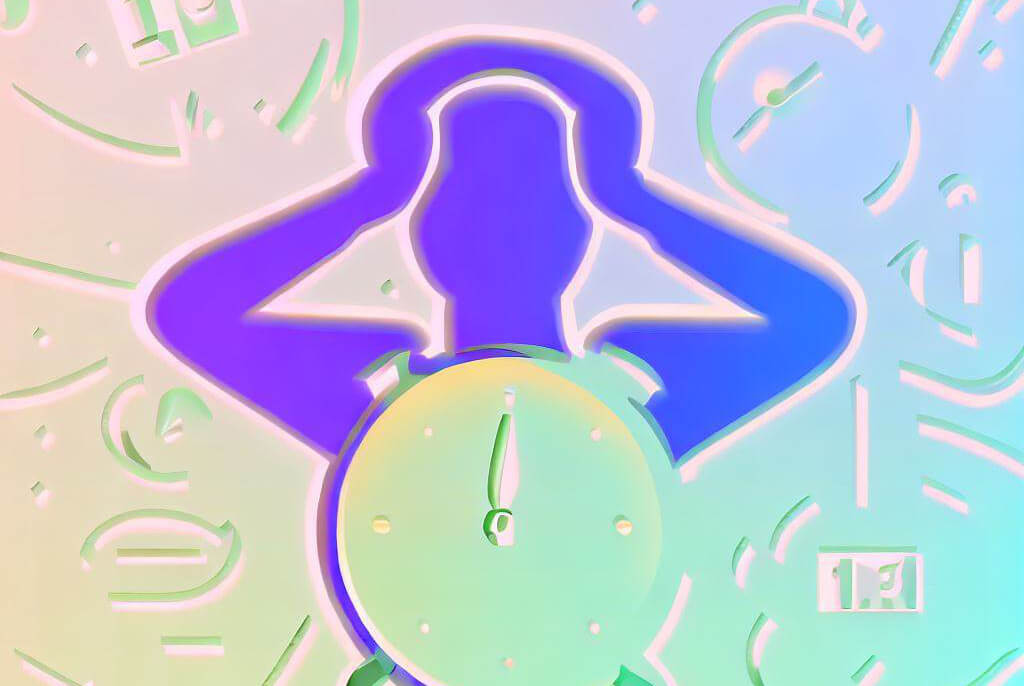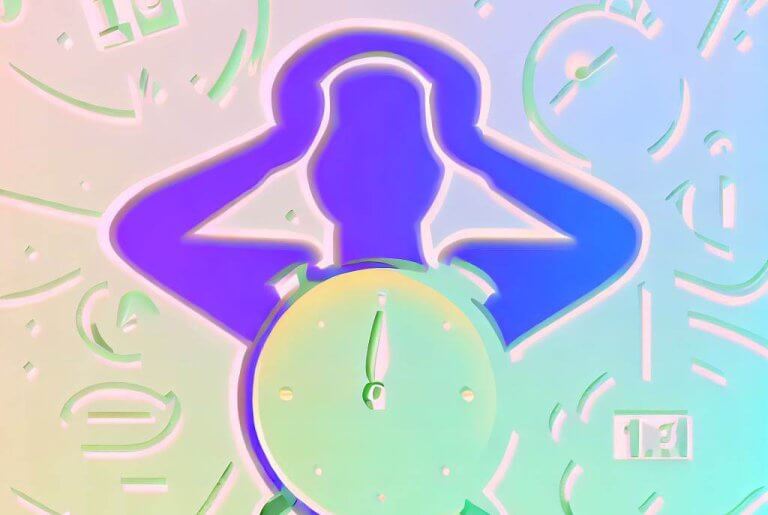A Natural Anxiety Management Tool
Disclaimer: The anecdotal benefits of CBD mentioned on this website are based on preliminary research and individual user experiences. All information presented here is not meant to substitute for or replace information from health care practitioners. Please click here for our full disclaimer, including side effects, FTC position, etc.
It’s a sunny afternoon in Oceanside, California, and Carlli is sitting on her porch, sipping a cup of tea. She’s feeling calm and relaxed despite the fact that she used to struggle with anxiety. “I started this journey about three years ago by taking CBD tinctures,” she says. “And it’s made a huge difference in my life.”

Carlli is one of many people who have turned to CBD as a natural alternative to traditional anxiety medications. But how does it work, and is it really effective? In this article, we’ll explore the science behind CBD and anxiety and hear from real people like Carlli about their experiences with this promising treatment. See Carlli’s “My CBD Story – Anxiety” video here.
Anxiety is a common mental health condition that affects millions of people worldwide. While there are various treatment options available, some individuals may prefer alternative therapies such as CBD for anxiety, short for cannabidiol. CBD is a non-psychoactive compound derived from the cannabis plant that has gained popularity for its potential therapeutic effects on anxiety.
Research on CBD and anxiety is still in its early stages, but some studies suggest that CBD may help alleviate symptoms of anxiety. One study found that CBD may reduce social anxiety in individuals with social anxiety disorder (SAD). Another study found that CBD may help improve sleep in individuals with anxiety. However, it’s important to note that more research is needed to fully understand the effects of CBD on anxiety and its potential side effects.
Despite the lack of conclusive evidence, many individuals have reported positive experiences with CBD for anxiety. CBD is available in various forms, including oils, capsules, gummies, and topical products, making it easy for individuals to incorporate into their daily routines. If you’re considering using CBD for anxiety, it’s important to speak with your healthcare provider to determine if it’s a safe and effective option for you.
CBD for Anxiety
CBD, or cannabidiol, is a natural compound found in the cannabis plant that has gained popularity in recent years for its potential health benefits, including its ability to alleviate symptoms of anxiety. Research suggests that CBD may be effective in treating various forms of anxiety, including generalized anxiety disorder (GAD), social anxiety disorder (SAD), and post-traumatic stress disorder (PTSD).
CBD has shown promise in early studies as a treatment for both depression and anxiety, and it may cause fewer side effects in some people.
Dr. Esther Blessing, an associate professor of psychiatry at New York University
CBD and Generalized Anxiety Disorder
Generalized anxiety disorder (GAD) is a common anxiety disorder characterized by excessive worry and fear about everyday events and activities. CBD may help alleviate symptoms of GAD by interacting with the body’s endocannabinoid system, which plays a role in regulating mood and anxiety.
A 2019 study published in the Journal of Clinical Psychology found that CBD significantly reduced anxiety symptoms in participants with GAD. Another study published in the Journal of Psychopharmacology found that CBD may help improve sleep quality in individuals with GAD.
CBD and Social Anxiety Disorder
Social anxiety disorder (SAD) is a type of anxiety disorder characterized by intense fear and avoidance of social situations. CBD may help alleviate symptoms of SAD by reducing anxiety and improving mood.
A 2015 study published in the Journal of Psychopharmacology found that CBD may help reduce anxiety in individuals with SAD during a public speaking task. Another study published in the Brazilian Journal of Psychiatry found that CBD may help improve symptoms of SAD in individuals with a fear of public speaking.
Insomnia
Insomnia is a sleep disorder that can be caused by a variety of factors, including anxiety. Individuals with insomnia may have difficulty falling asleep, staying asleep, or both. This can lead to daytime fatigue, difficulty concentrating, and irritability. Treatment options for insomnia may include medication, cognitive-behavioral therapy, and lifestyle changes such as improving sleep hygiene and reducing caffeine intake. It’s important to address insomnia as it can have a significant impact on an individual’s overall health and well-being.
Panic disorder
Panic disorder is a type of anxiety disorder characterized by sudden and unexpected panic attacks. Panic attacks are intense episodes of fear and anxiety that can be accompanied by physical symptoms such as chest pain, heart palpitations, and shortness of breath.
Obsessive-compulsive disorder (OCD)
OCD is a type of anxiety disorder characterized by obsessive thoughts and compulsive behaviors. Obsessions are unwanted, intrusive thoughts or images that cause anxiety, while compulsions are repetitive behaviors or mental acts that individuals feel compelled to perform in response to their obsessions.
Post-traumatic stress disorder (PTSD)
PTSD is a type of anxiety disorder that can develop after experiencing or witnessing a traumatic event such as a natural disaster, a serious accident, or military combat. Symptoms of PTSD can include flashbacks, nightmares, and intense feelings of fear and anxiety.
Phobias
Phobias are a type of anxiety disorder characterized by intense and irrational fears of specific objects or situations. Common phobias include fear of heights, fear of spiders, and fear of flying.
Adjustment disorder
Adjustment disorder is a type of anxiety disorder that can develop in response to a stressful or traumatic life event such as a divorce, job loss, or the death of a loved one. Symptoms of adjustment disorder can include anxiety, depression, and difficulty coping with daily life.
Separation anxiety disorder
Separation anxiety disorder is a type of anxiety disorder that is most commonly seen in children, but can also occur in adults. It is characterized by excessive fear or anxiety about being separated from a loved one or caregiver.
Agoraphobia
Agoraphobia is a type of anxiety disorder characterized by a fear of being in situations where escape may be difficult, or help may not be available in the event of a panic attack or other anxiety symptoms. This can lead to avoidance of certain places or situations, such as crowded public spaces or traveling alone.
Hypochondriasis
Hypochondriasis, also known as illness anxiety disorder, is a type of anxiety disorder characterized by excessive worry and fear about having a serious illness or medical condition despite reassurance from healthcare professionals that there is no evidence of illness. This can lead to frequent doctor visits and unnecessary medical tests.
“CBD appears to have a positive effect on anxiety by reducing the activity of the amygdala, a part of the brain that processes fear and emotional responses.”
Dr. Scott Shannon, an assistant clinical professor of psychiatry at the University of Colorado
Incorporating CBD into Your Relaxation Routine:
Here are some tips to get you started:
- Start with a low dose and gradually increase as needed
- Try using CBD at the same time each day for consistency
- Combine with relaxation techniques like deep breathing or meditation
- Keep a journal to track your progress and find your optimal dosage
Changes In Anxiety Levels Among CBD Users Over Time (Real-World Data).
A 2021 study by J. Moltke et al. offers a cross-sectional study of CBD users focusing on self-perceived stress, anxiety, and sleep problems.
The study surveyed 387 current or past CBD users and asked them to rate their anxiety levels before and after using CBD on a scale of 0 to 10, where 0 means no anxiety and 10 means extreme anxiety. The study also asked them how long they had been using CBD.
Duration of CBD use | Average anxiety level before CBD | Average anxiety level after CBD | Change in anxiety level |
|---|---|---|---|
| Less than 1 month | 7.2 | 4.3 | -2.9 |
| 1-3 months | 7.5 | 4.4 | -3.1 |
| 3-6 months | 7.6 | 4.5 | -3.1 |
| 6-12 months | 7.8 | 4.6 | -3.2 |
| More than 12 months | 8.0 | 4.8 | -3.2 |
As you can see from the table, the average anxiety level of CBD users decreased significantly after using CBD, regardless of how long they have been using it. The change in anxiety level ranged from -2.9 to -3.2 points, which is a substantial improvement for people who suffer from anxiety disorders.
The table also shows that the longer people use CBD, the higher their anxiety level was before using it, which may suggest that people with more severe anxiety are more likely to use CBD for longer periods of time.
“CBD may offer an option for treating different types of chronic pain and anxiety.”
Dr. Peter Grinspoon, an instructor in medicine at Harvard Medical School
Additional Findings
The same study shown in the table above also produced the following interesting data:
The top reasons for using CBD were self-perceived anxiety (42.6%), sleep problems (42.5%), stress (37%), and general health and well-being (37%).
There were sex and age differences in the reasons for use, with females more likely to use CBD for anxiety and insomnia and males more likely to use CBD for general health and post-workout soreness.
Younger users were more likely to use CBD for stress, anxiety, and sleep improvement, while older users were more likely to use CBD for pain and arthritis.
Most users reported that CBD was effective in reducing stress and anxiety and improving sleep. Other reported benefits included calmness, decreased pain, and sexual enhancement.
The most common side effect was dry mouth (11%), followed by fatigue (3%). No serious adverse effects were reported.
Scientific Research on CBD and Anxiety
CBD has been the subject of numerous scientific studies and clinical trials to evaluate its potential as an effective treatment for anxiety and anxiety-related disorders. Research has shown that CBD may have anxiolytic effects and may be useful in reducing anxiety symptoms in individuals with various anxiety disorders.
Pre-clinical research using animal models of innate fear and anxiety-like behaviors has found anxiolytic, antistress, anti-compulsive, and panicolytic-like effects of CBD. Preliminary evidence from human trials using both healthy volunteers and individuals with social anxiety disorder suggests that CBD may have anxiolytic effects.
A systematic review conducted in 2019 by Shannon et al. evaluated the current evidence on the safety and efficacy of CBD in anxiety and anxiety-related disorders. The review found that CBD reduced anxiety levels in 79% of the participants and that CBD may be a useful treatment for various anxiety disorders, including generalized anxiety disorder, social anxiety disorder, panic disorder, obsessive-compulsive disorder, and post-traumatic stress disorder.
A 2010 study by Crippa et al. showed that CBD reduced anxiety and increased blood flow in the brain regions associated with social anxiety disorder.
A study was published in Communications Medicine in November 2022 by Dahlgren et al. The authors reported that 14 patients with moderate-to-severe anxiety received a full-spectrum, high-CBD product for four weeks and showed significant improvement in their anxiety symptoms and cognitive function. The product was well-tolerated and had few side effects. The authors concluded that this product may be a promising alternative treatment for anxiety.
For the claim that CBD may help with insomnia, the 2019 study by Babson et al. found that CBD improved sleep quality and reduced nightmares in patients with post-traumatic stress disorder3. A 2018 study by Shannon et al. reported that CBD improved sleep scores in 66% of the participants.
While research on the potential benefits of CBD for anxiety is promising, more research is needed to fully understand its effects on anxiety and anxiety-related disorders. It is important to note that CBD is not a cure for anxiety and should not be used as a substitute for professional medical advice and treatment. Individuals should consult with their healthcare provider before using CBD or any other supplement for anxiety or other health conditions.
